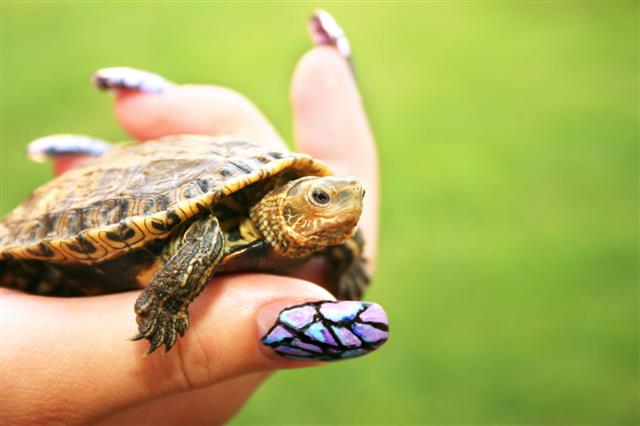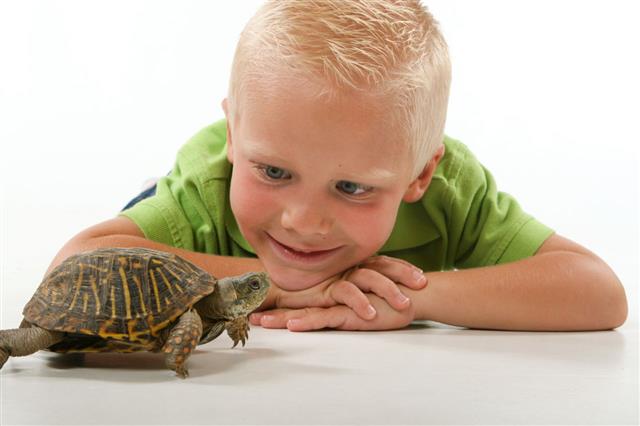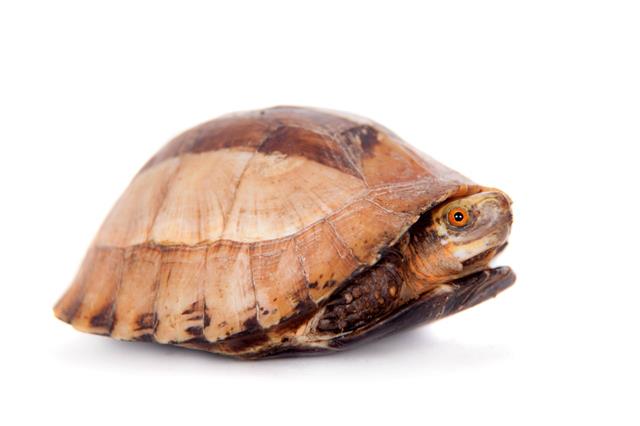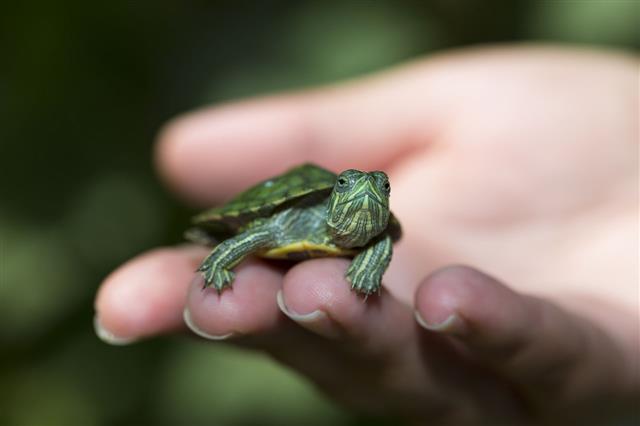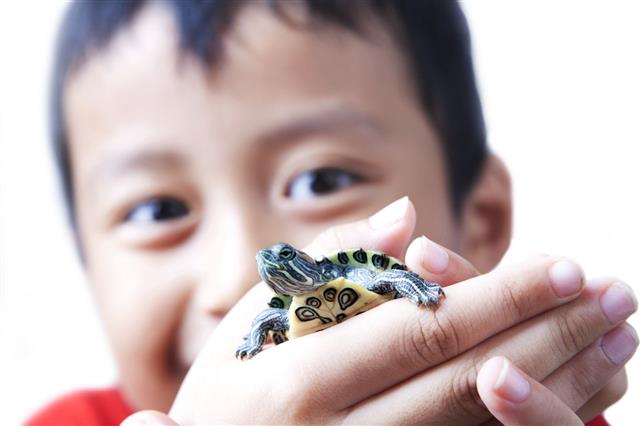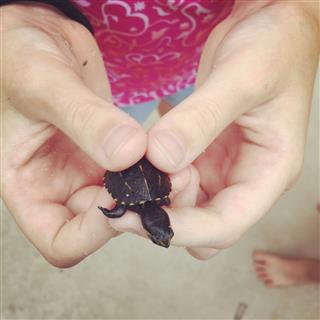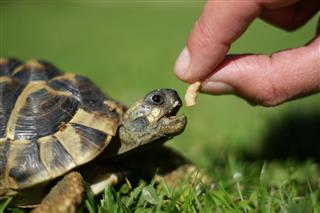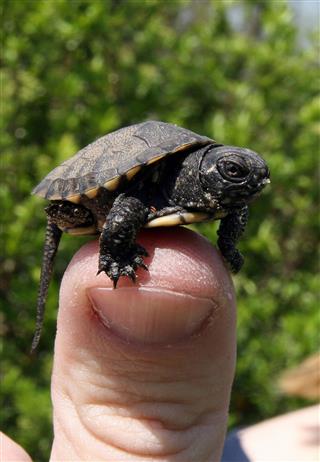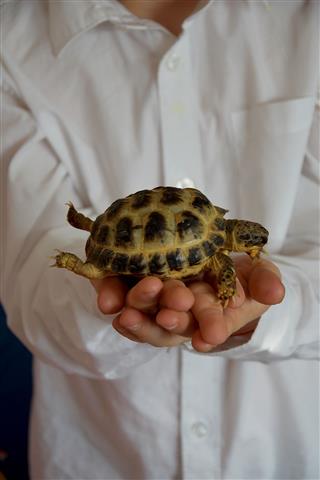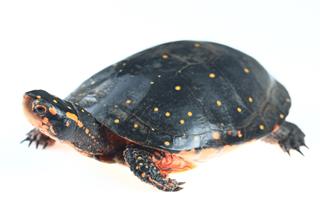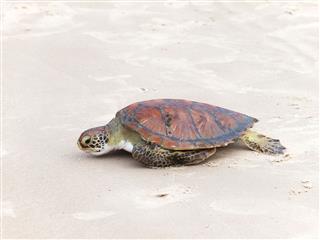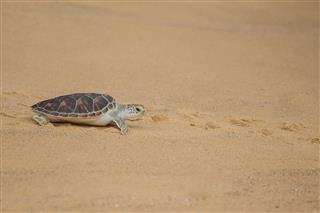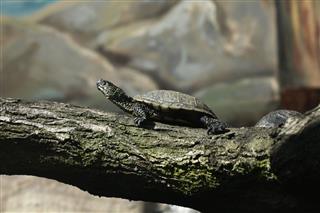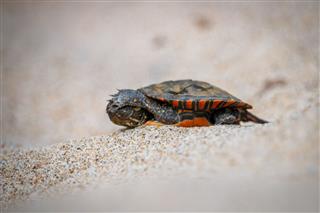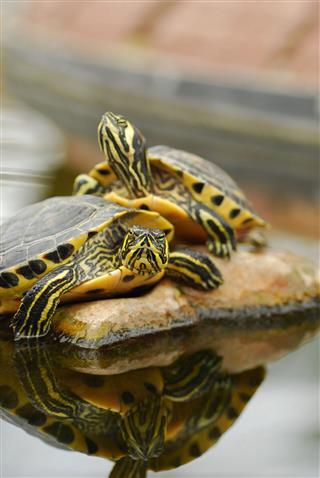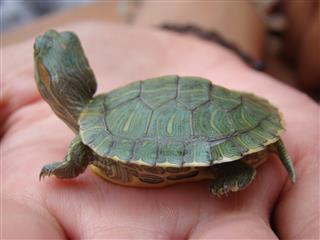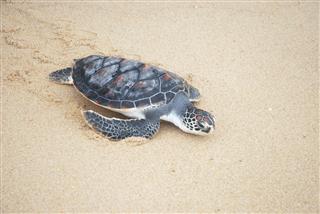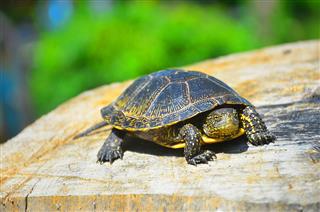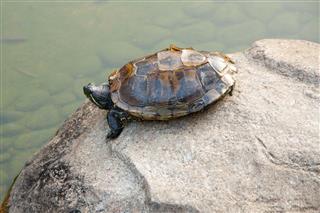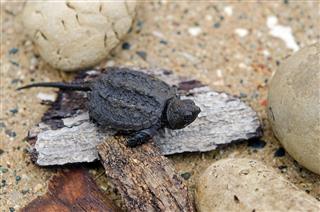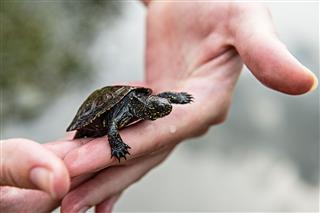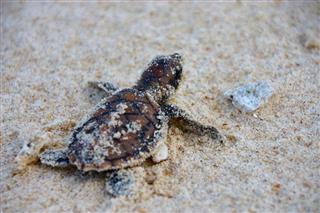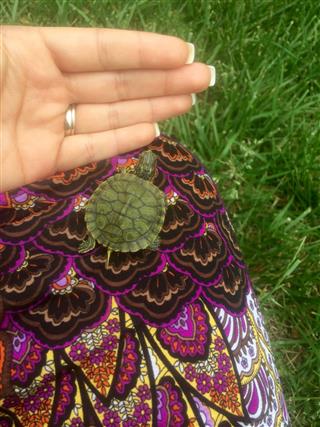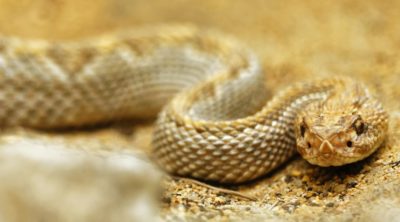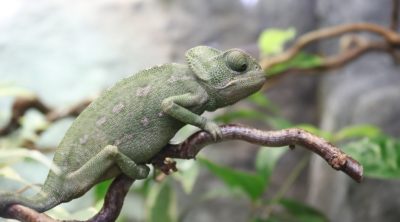
If you are a turtle-lover but find it difficult to manage big turtles at home, you can opt for the various adorable small species available.
A word of caution!
The sale of turtles with a carapace length of less than 4 inches is considered illegal in the United States.
When it comes to exotic pets, turtles seem to lead the list of preferred animals. Some choose them as they are quite adorable, while others opt for them as they are hardy and don’t require much in terms of care. You also get to see a great deal of diversity when it comes to the size of these reptiles. Some species easily fit on our palm, while some are as big as our forearm. But obviously, species that stay small are preferred, as there exist numerous benefits of keeping them as pets.
Note: If the folks at the Centers for Disease Control and Prevention (CDC) are to be believed, you should be wary of getting home a turtle if your household has children under five, elderly people, a pregnant woman, or if someone is suffering from a disease that affects the immune system. They may seem harmless, but turtles carry Salmonella bacteria, which can be easily transferred to humans.
Wondering why only the sale of small turtles is banned, when large ones are also known to carry Salmonella? That’s because children are less likely to play with large turtles, or put them in their mouth for that matter.
When you seek turtles that stay small, you need to take into account the legalities involved. You will come across people indulging in the illegal practice of selling turtles with carapace length of less than four inches, but you are better off reporting such people, instead of buying the small turtles that they are selling.
List of Small Pet Turtles
The popularity of small pet turtles can be attributed to the fact that it is convenient to house them even in a small apartment. While large species, which require ample space, have to be kept outdoors, small turtles can be kept in a 40- or 50-gallon aquarium inside the house. More importantly, you don’t have to worry much when it comes to their behavior, care, or dietary habits. If you have been looking for turtle species that don’t grow too big, given below are some options that you can consider.
Musk Turtles
Rarely growing beyond a length of 5 inches, musk turtles are your best bet if you are seeking pet turtles that won’t become a problem because of their size in the long run. Basically, there are four species of musk turtles: flattened musk turtles, loggerhead musk turtles, common musk turtles, and razorback musk turtles. Considering their size, an enclosure measuring roughly about 45 inches in length and 25 inches in width will be sufficient for a pair.
Mud Turtles
Mud turtles are native to the United States, Mexico, and parts of Africa. Of the four mud turtle species popular as pets, common mud turtles and striped mud turtles can attain a length of up to 4.5 inches. Yellow mud turtles and Sonoran mud turtles, on the other hand, grow up to a length of 6 inches at times. Just because they are called mud turtles, it doesn’t mean you have to muddy their enclosure.
Spotted Turtles
A semi-aquatic species, the spotted turtle can grow to a length of 5 inches at full growth. Owing to the small size of the species, a 55-gallon tank is more than enough to house them. These turtles are largely terrestrial and hence, their captive habitat should be ideally half water and half land. They should be kept in shallow water, as they are not known to be good swimmers, and a basking log should be provided to help them come out of the water if need be.
Reeves’ Turtles
With an average length of 5 inches, Reeves’ turtles or Chinese pond turtles make good pets. More importantly, they have a very docile nature, which makes them ideal for beginners. If you intend to get them as pets, make sure that you check them properly; especially their shell. These turtles are susceptible to a range of diseases that reflect on their shell. As for housing, clean water and ample space for basking is a must.
Diamondback Terrapins
Though not as small as the species we discussed above, diamondback terrapins are considerably small species, with males measuring about 5 inches and females measuring 7 inches. Though they are hardy, they are not considered ideal for beginners. As they are susceptible to shell diseases and fungal infections, you will have to invest a considerable bit of time in their care. You will have to house them in a large aquarium―70-gallon preferably―to make sure that they remain active and healthy.
The best thing about these species is that you don’t even have to spend a fortune on their housing or care. However, you need to go through their requirements―as few as they are―and the legalities of keeping them as pets before you make the final call.
